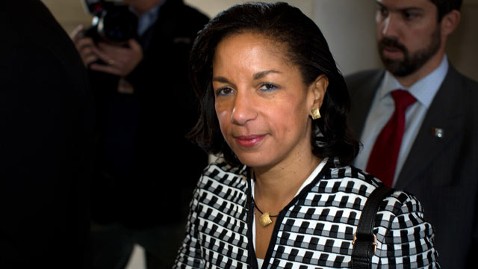Twenty children died today when a heavily armed man invaded a Newtown, Conn., elementary school and sprayed staff and students with bullets.
The gunman, identified as Adam Lanza, 20, was found dead in the school.
Lt. Paul Vance said 18 children died in the school and two more died later in a hospital. Six adults were also slain, bringing the total to 26.
In addition to the casualties at the school, a body was also found in the shooter's home, officials said.
Among the dead was Lanza's mother, although it's not clear where she was killed.
In the early confusion surrounding the investigation, federal sources initially identified the suspect as Adam's older brother Ryan Lanza, 24. He is being questioned by police.
LIVE UPDATES: Newtown, Conn., School Shooting
Sources said the shooter was armed with a Glock semi automatic handgun and a Sig Sauer semi automatic handgun, law enforcement sources told ABC News. Additionally, .223 caliber shell casings--a rifle caliber--were also found at the scene. He was wearing a bullet-proof vest when he opened fire in the elementary school.
First grade teacher Kaitlin Roig, 29, locked her 14 students in a class bathroom and listened to "tons of shooting" until police came to help.
"It was horrific," Roig said. "I thought we were going to die."
She said that the terrified kids were saying, "I just want Christmas…I don't want to die. I just want to have Christmas."
Shannon Hicks/The Newtown Bee
Connecticut Elementary School Shooting: 'Several Fatalities' Watch Video
Connecticut Shooting: 27 Dead at Sandy Hook Elementary School Watch Video
Connecticut School Shooting: White House Response Watch Video
A tearful President Obama said there's "not a parent in America who doesn't feel the overwhelming grief that I do."
The president had to pause to compose himself after saying these were "beautiful little kids between the ages of 5 and 10." As he continued with his statement, Obama wiped away tears from each eye.
He has ordered flags flown as half staff.
The alert at the school ended when Vance announced, "The shooter is deceased inside the building. The public is not in danger."
The massacre prompted the town of Newtown to lock down all its schools and draw SWAT teams to the school, authorities said today. Authorities initially believed that there were two gunmen and were searching cars around the school, but authorities do not appear to be looking for another gunman.
It's unclear how many people have been shot, but 27 people, mostly children, are dead, multiple federal and state sources tell ABC News. That number could rise, officials said.
CLICK HERE for more photos from the scene.
It is the second worst mass shooting in U.S. history, exceeded only by the Virginia Tech shooting in 2007 when 32 were killed before the shooter turned the gun on himself. Today's carnage exceeds the 1999 Columbine High School shooting in which 13 died and 24 were injured.
The Newtown shooting comes three days after masked gunman Jacob Roberts opened fire in a busy Oregon mall, killing two before turning the gun on himself.
Today's shooting occurred at the Sandy Hook Elementary School, which includes 450 students in grades K-4. The town is located about 12 miles east of Danbury.
State Police received the first 911 call at 9:41 a.m. and immediately began sending emergency units from the western part of the state. Initial 911 calls stated that multiple students were trapped in a classroom, possibly with a gunman, according to a Connecticut State Police source.
Lt. Paul Vance said that on-duty and off-duty officers swarmed to the school and quickly checked "every door, every crack, every crevice" in the building looking for the gunman and evacuating children.
A photo from the scene shows a line of distressed children being led out of the school.
Three patients have been taken to Danbury Hospital, which is also on lockdown, according to the hospital's Facebook page.










